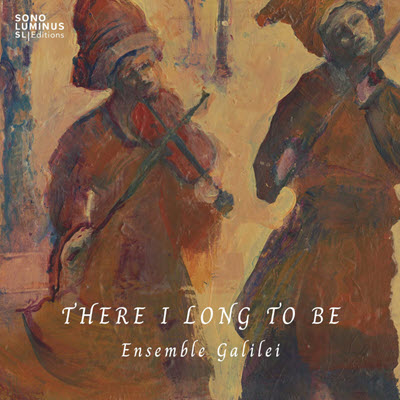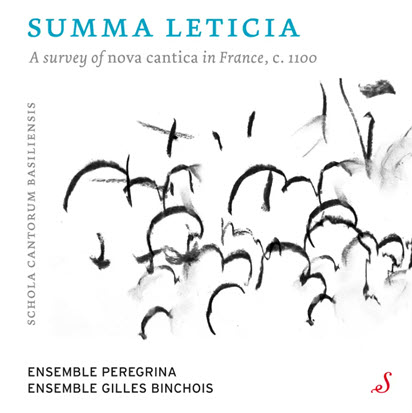by Karen M. Cook
Published August 21, 2023
Ex Tenebris Ad Lucem: Venetian Music of Penitence from a Time of Plague (1575–77) Concerto Palatino. Bruce Dickey, director. Passacaille PAS1135
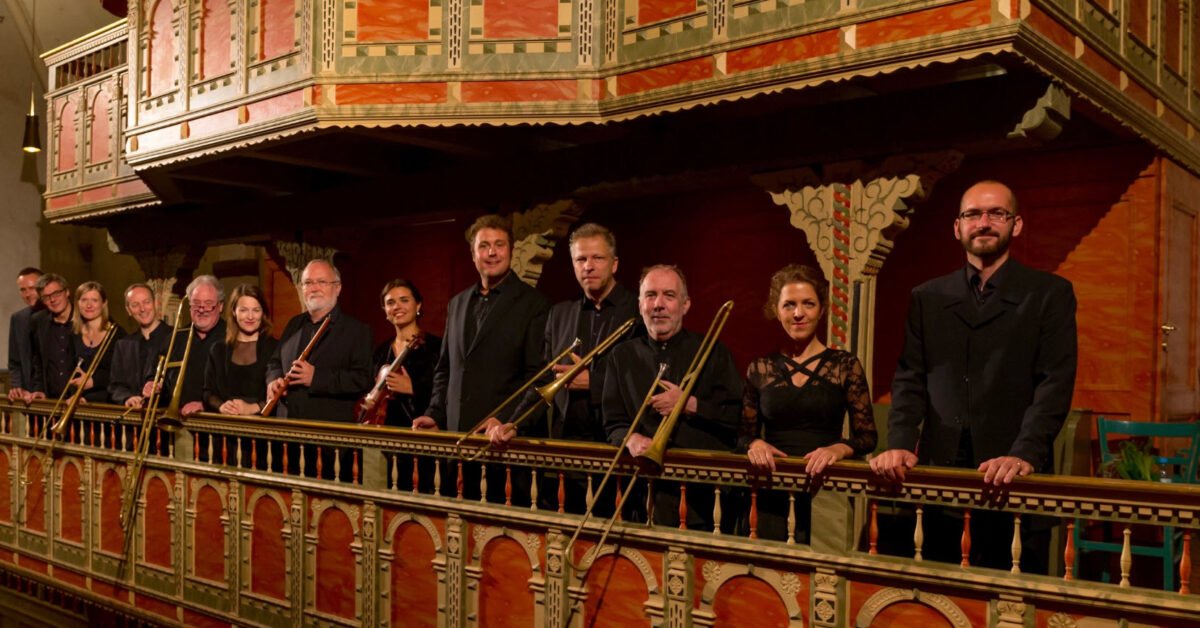
If the Covid-19 pandemic has affected every facet of our lived experiences, it has also caused us to look to the past anew, whether for solace, guidance, or inspiration. Such is the case with Ex Tenebris Ad Lucem: Venetian Music of Penitence from a Time of Plague, the latest recording from Concerto Palatino, led by cornettist Bruce Dickey. The group routinely explores the sacred works of the early-modern period but, on this new album from the Belgian Passacaille label, the ensemble turns its attention specifically to music’s role in a past pandemic.
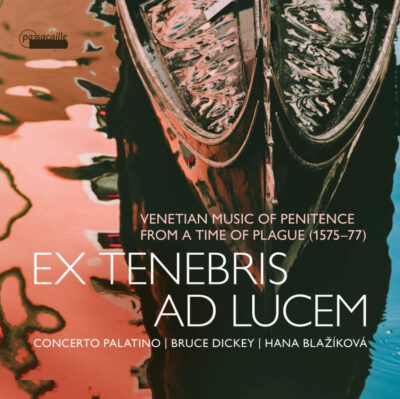
From 1575 to 1577, Venice was devastated by a bout of the plague, losing up to a third of its population. As people were unsure as to what caused the dreaded disease, many took whatever medical, hygienic, or spiritual precautions they felt were necessary, and the decision was made to build a huge church — the Chiesa del Redentore — in the hopes of mitigating God’s anger.
The album seeks to explore what the spiritual sound world of these times might have been. The first two motets on the album might plausibly have been performed during moments related to the founding of the Chiesa. The luminous opening motet O crux splendidior, for example, was chosen for its connections to the Church of the Cross, where the Doge and his community celebrated Mass on their way to the new church. And Nativitas tuo would quite possibly have been performed for the Nativity of the Blessed Virgin Mary, which fell during the ceremonies dedicated to the decision to build the Chiesa.
The other works, written around the time of the plague, were chosen because of their thematic content. Some, like the two psalm settings selected from Andrea Gabrieli’s Psalmi Davidici, qui poenitentiales nuncupantur, are penitential in nature, reflecting the desire to appease an angry God. Others, like Giovanni Croce’s Miserere mei or Gabrieli’s Usquequo Domine, plead for remembrance and beg for relief. The album concludes with works of thanksgiving and praise, a theme echoed even within the earlier more doleful works. At the center of the album is a newly commissioned work from Robert Kyr (b. 1952). His Vigil: From Darkness into Light, from which the album draws its name, juxtaposes excerpts of the Andrea and Giovanni Gabrieli psalm settings included here against English arias amid a swirl of contemporary harmonies.
Concerto Palatino has earned its fair share of accolades over the years. This album demonstrates yet again how very well deserved they are. From the opening of O crux splendidior, the aural equivalent of the sun emerging over the horizon, to the mellow joy and agile conclusion of Giovanni Gabrieli’s Jubilate Deo, the ensemble is at peak form.
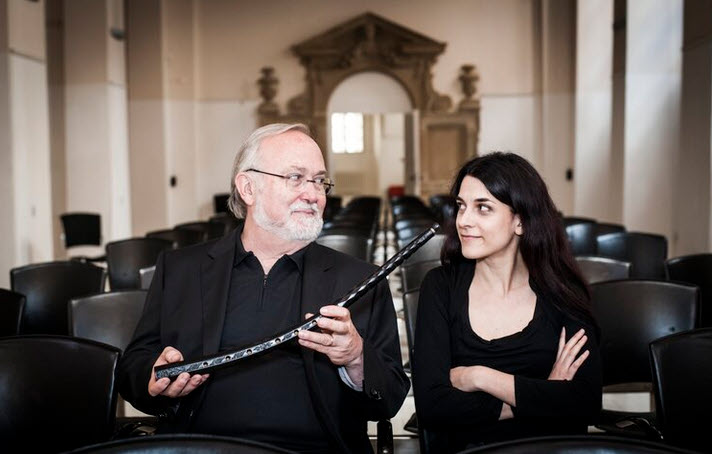
The blend here between Dickey’s cornetto and the voices, in particular Hana Blažíková’s stunning soprano and Alex Potter’s countertenor, is superb: listen to the beginning of Nativitas tuo, or to the central passages of Delictum meum (the second part of Andrea Gabrieli’s Beati quorum remissae sunt), or to the fuller textures of Deus, Deus meus, ad te de luce vigilo, and note how subtly voice and cornetto intertwine.
The choice to set certain pieces for voices alone, or with minimal continuo, is poignant: Usquequo, Domine is an aching cry for divine aid, its concluding “Respice, et exaudi me, Domine Deus meus” beautifully sensitive. As was the custom in Venice, the ensemble has chosen Gabrieli’s setting of Eructavit cor meum to perform with instruments alone, which provides a momentary reprieve from the agonizing grief in the works that bookend it. And the new work by Kyr is, in a word, haunting. A most highly recommended recording.
Karen M. Cook is Associate Professor of Music History at the University of Hartford. She specializes in late medieval music theory and notation, focusing on developments in rhythmic duration. She also maintains a primary interest in musical medievalism in contemporary media, particularly in video games.

